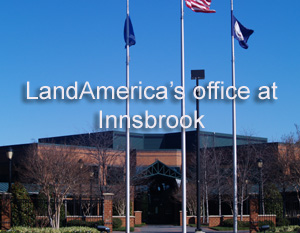 Two former giants of the Richmond business scene are still kicking from the grave.
Two former giants of the Richmond business scene are still kicking from the grave.
The bankruptcy estates of Circuit City and LandAmerica recently sued more than 600 companies, including vendors, landlords, lenders, TV stations, newspaper companies and pretty much anyone else who did business with the two firms in the three months before they went bust.
And although it might cause another headache for companies who thought they were done with the Circuit City and LandAmerica dramas, these lawsuits against businesses all over the country are a late-stage attempt to recoup tens of millions of dollars for the bankruptcy estates.
It’s all part of a complicated process related to preference payments, a part of bankruptcy law that aims to protect certain creditors from receiving preferential treatment from faltering debtors just before companies file for bankruptcy protection.
 “The fundamental theory is not to prefer one creditor over another on the eve of bankruptcy,” said Tom Ebel, a bankruptcy attorney at Sands Anderson.
“The fundamental theory is not to prefer one creditor over another on the eve of bankruptcy,” said Tom Ebel, a bankruptcy attorney at Sands Anderson.
The suits filed by Circuit City and LandAmerica relate to transactions that took place during the 90 days prior to their respective bankruptcy filings. The 90-day period is known as a look-back period, and a trustee has the power to question payments the bankrupt entity made during that time and force the defendants prove the payments were proper.
The trustees’ goal, Ebel said, is to recover as much of those funds as possible.
Ironically, many of the parties that are being sued are also creditors of Circuit City and LandAmerica. So while they wait in line to be paid back, they are now being hit up for big bucks.
“It is difficult for the creditors to accept because often they are already owed substantial amounts,” Ebel said.
Ronald A. Page Jr., a bankruptcy attorney who has worked extensively on the LandAmerica case, said these Circuit City preference suits could add up to hundreds of millions of dollars for the bankruptcy estate.
“The numbers can get large very quickly,” Page said.
Page said suits of this nature are common in bankruptcy cases and often can be a boon for the bankruptcy estate as many end up settling.
“It’s good practice for a trustee to pursue as many as possible,” Page said. “Depending on the entity and the situation, the trustee is in the driver’s seat. It’s definitely a bonanza for the trustee.”
The suits are also big business for local law firms. Several local firms are involved on both sides of these cases, including Sands Anderson, Page’s firm, Tavenner & Beran, LeClairRyan and others.
These sorts of cases typically end up in mediation and are settled with the trustee offering a discount on the claim.
“There are going to be a lot of settlements,” Page said. “It’s advantageous for both sides to not incur needless litigation costs.”
But the high-dollar suits in which defendants have a legitimate defense against the preference argument could drag on and end up in front of a judge.
“As your dollar value goes up, the more likely you are to have courtroom disputes,” Page said.
The Circuit City suits are against electronics makers, video game companies, and even a Las Vegas casino. Media General and several other newspaper owners are also on the list of defendants, as are TV stations such as MTV and ESPN.
LandAmerica’s estate is suing more financial and real estate related firms, among them Fannie Mae, Capital One and CB Richard Ellis.
Many defendants won’t even respond to the suits, Page said. In that case, a federal default judgment will be granted, and the trustee will then have to try to collect.
“Collecting the money — that’s the hard part,” Page said.
Michael Schwartz is a BizSense reporter. Please send news tips to [email protected].
 Two former giants of the Richmond business scene are still kicking from the grave.
Two former giants of the Richmond business scene are still kicking from the grave.
The bankruptcy estates of Circuit City and LandAmerica recently sued more than 600 companies, including vendors, landlords, lenders, TV stations, newspaper companies and pretty much anyone else who did business with the two firms in the three months before they went bust.
And although it might cause another headache for companies who thought they were done with the Circuit City and LandAmerica dramas, these lawsuits against businesses all over the country are a late-stage attempt to recoup tens of millions of dollars for the bankruptcy estates.
It’s all part of a complicated process related to preference payments, a part of bankruptcy law that aims to protect certain creditors from receiving preferential treatment from faltering debtors just before companies file for bankruptcy protection.
 “The fundamental theory is not to prefer one creditor over another on the eve of bankruptcy,” said Tom Ebel, a bankruptcy attorney at Sands Anderson.
“The fundamental theory is not to prefer one creditor over another on the eve of bankruptcy,” said Tom Ebel, a bankruptcy attorney at Sands Anderson.
The suits filed by Circuit City and LandAmerica relate to transactions that took place during the 90 days prior to their respective bankruptcy filings. The 90-day period is known as a look-back period, and a trustee has the power to question payments the bankrupt entity made during that time and force the defendants prove the payments were proper.
The trustees’ goal, Ebel said, is to recover as much of those funds as possible.
Ironically, many of the parties that are being sued are also creditors of Circuit City and LandAmerica. So while they wait in line to be paid back, they are now being hit up for big bucks.
“It is difficult for the creditors to accept because often they are already owed substantial amounts,” Ebel said.
Ronald A. Page Jr., a bankruptcy attorney who has worked extensively on the LandAmerica case, said these Circuit City preference suits could add up to hundreds of millions of dollars for the bankruptcy estate.
“The numbers can get large very quickly,” Page said.
Page said suits of this nature are common in bankruptcy cases and often can be a boon for the bankruptcy estate as many end up settling.
“It’s good practice for a trustee to pursue as many as possible,” Page said. “Depending on the entity and the situation, the trustee is in the driver’s seat. It’s definitely a bonanza for the trustee.”
The suits are also big business for local law firms. Several local firms are involved on both sides of these cases, including Sands Anderson, Page’s firm, Tavenner & Beran, LeClairRyan and others.
These sorts of cases typically end up in mediation and are settled with the trustee offering a discount on the claim.
“There are going to be a lot of settlements,” Page said. “It’s advantageous for both sides to not incur needless litigation costs.”
But the high-dollar suits in which defendants have a legitimate defense against the preference argument could drag on and end up in front of a judge.
“As your dollar value goes up, the more likely you are to have courtroom disputes,” Page said.
The Circuit City suits are against electronics makers, video game companies, and even a Las Vegas casino. Media General and several other newspaper owners are also on the list of defendants, as are TV stations such as MTV and ESPN.
LandAmerica’s estate is suing more financial and real estate related firms, among them Fannie Mae, Capital One and CB Richard Ellis.
Many defendants won’t even respond to the suits, Page said. In that case, a federal default judgment will be granted, and the trustee will then have to try to collect.
“Collecting the money — that’s the hard part,” Page said.
Michael Schwartz is a BizSense reporter. Please send news tips to [email protected].
What a bunch of @#*%.
If a company goes bust from mis management and they owe me money, What an injustice in trying to collect it back. Something is wrong with the laws of this country.
I’ve seen many of these preference “requests” over the years, haven’t paid the 1st one yet. If either one of these companies paid you money 90 days prior to the filing of the bankruptcv you probably made the list. It then becomes your responsibilty to either prove or disprove their case against your company. I seriously doubt either company paid many, if any, vendors out of “the normal course of business” IMO